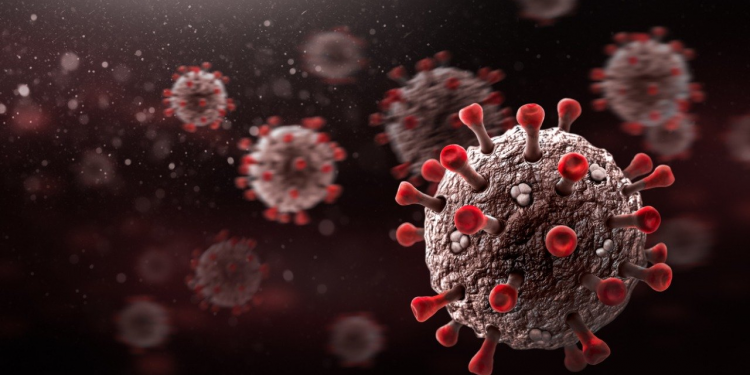Experts says ‘Delta Plus’ AY.4.2 COVID-19 variant of concern

Delta variant called AY.4.2. PHOTO IMAGES
The Centers for Disease Control and Prevention (CDC) said coronavirus has continued to mutate and change as it has spread across the globe in the last 2 years.
The most concerning new variant of the coronavirus is an offshoot of the Delta variant called AY.4.2.
It’s currently spreading in the United Kingdom and has confirmed presence in the United States, health officials said at a White House briefing.
“Variants are changes to the virus that occur at random,” Dr. Eric Cioe-Peña, director of global health at Northwell Health in New Hyde Park, New York.
“When they give a replication advantage to the virus, they become dominant,” Pena added
According to the latest official data, AY.4.2, also called “Delta Plus,” has been identified in about 6 percent of cases in the United Kingdom.
Data suggests AY.4.2 could be 10 percent more transmissible than the most common U.K. Delta variant, AY.4, Francois Balloux, PhD, director at the University College London Genetics Institute in his post in social media.
The Centers for Disease Control and Prevention (CDC) says the Delta variant is highly contagious and more resistant to treatment than the original variant.
A 10 percent increase could make the new variant the most infectious yet.
However, experts say that more infectious doesn’t necessarily mean greater cause for concern.
“Well, transmissible does not mean more dangerous,” said Dr. Len Horovitz, internist and pulmonary specialist at Lenox Hill Hospital in New York. “Doesn’t mean more virulent.”
He explained what it does mean is that the virus’s incubation period is shorter, so it can be transmitted faster and spread more easily than one that requires longer incubation.
“Transmissibility does not equate with virulence,” he emphasized. “So we don’t know if these cases will be more serious.”
Horovitz confirmed it’s unlikely that the Delta Plus variant can evade all vaccine-related immunity.
“That’s pretty clear that [it] would have to have a lot more variation,” he said. “A lot more mutation in this virus before it could evade vaccines. So, that’s not particularly a worry.”
The variant’s potential infectiousness means we could see a significant increase in cases, which could lead to more people with serious disease.
“When there are more cases there’s more chance of complications, more chance of hospitalizations,” Horovitz said. “But again, the vaccines are protecting against hospitalization and death.”
He added that while he doesn’t expect that to change too much, “we may have more cases, more downtime, more people isolated, or disruption.”
We believe in health equity — the equal opportunity for everyone to live their healthiest life. Volunteer your time to transform your community and join us in creating a healthier world — for everyone.
Experts say not only are the current COVID-19 vaccines still highly effective, but our immune systems may be more powerfully stimulated by vaccination than we think.
“We have more memory in the memory B cells and memory T cells in our bone marrow than we measure by looking at peripheral antibodies,” Horovitz said.
But this doesn’t mean booster shots aren’t important.
“We’ve all committed to boosters, and we should commit to boosters because that’s just what’s been set out for us,” Horovitz said. “And the booster, these vaccines will cover the mutations that we’ve seen thus far.”
He also said that there would have to be “a lot more” mutations in the virus before we worry that the vaccines need to be changed in response.






